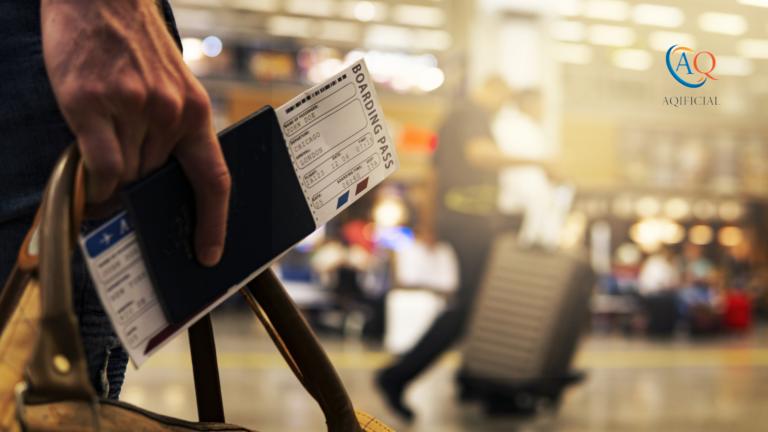Travelling is one of the most enriching experiences anyone can have. It allows you to see new places, meet new people, and learn about different cultures. However, if you are an Indian expat holding a UAE residence visa, your ability to travel unrestricted may be in jeopardy. Recent changes to UAE visa regulations now require that your passport bear your full name, including your surname. This blog post will explore the implications of this change and offer tips on how to travel stress-free to the UAE.
According to the new guidelines set by the Consulate General of India in Dubai, expats holding a UAE residence visa are not allowed to travel without their surname mentioned in their passports.
The recent amendment to passport guidelines requires that all passengers must have their father’s or family’s name mentioned on the second page of their passport in order to be able to immigrate to UAE.
The new guidelines state that passport holders with a single name, either in the given name/first name or in the surname, will not be allowed to enter the UAE and will be considered inadmissible passengers.
This policy could complicate travel for tourists whose passports only include their first names. They will not be able to fly to the UAE unless they don’t get their passports rectified and add their surname/family name.
This could create difficulties for expats who are planning to travel to the UAE in the near future, as they would need to change their passports before they are able to enter the country back again.
Key Points
- UAE will no longer allow entry to Indians whose passports do not include a last name or surname.
- Those who have only their first names on their passports are allowed entry into the UAE only if they mention their family name/surname on the second page of their respective passport.
- This rule is for the visit, employment, and temporary visa holders.
- The rule does not currently apply to UAE Resident card holders.
- The ban is in response to the growing number of fraudulent cases being reported from India, where people have been using fake passports to travel to the UAE.
- In order to avoid any inconvenience, it is advised that you update your passport at the earliest with a second name or a surname.
This will ensure that you have a stress-free travel experience when you visit the UAE.
How to add a surname on an Indian passport in the UAE?
Adding a surname to your Indian passport in the UAE is an entirely manageable process. Although it might seem intimidating, the process follows a few simple steps and can generally be done quickly with the information at hand. The foremost step is to apply for a “Re-issue” of your passport since you cannot make modifications to existing ones.
After you have gone through the requisite procedures, you will be able to submit the documents that require changes as well as proof of your change of name or surname.
This evidence could include marriage certificates and court orders. Once these have all been processed, you now need to fill out the specified ‘personal particulars’ section on your passport application with the desired new surname and submit this form along with any other requisite documents. With this taken care of, you can have your updated passport in no time.
Criteria for Residential or Employment Visa
With a growing interest in traveling to the United Arab Emirates (UAE), aspiring travelers may not be aware of certain requirements that must be fulfilled in order to make their journey a reality. To ensure a smooth trip, Indian passport holders are encouraged to be aware of the local regulations, particularly if they are applying for an Emirates visa with a single name.
Fortunately, passengers traveling to the UAE on either residential or employment visas will be exempted from this rule and allowed passage into the country provided that the same name is uploaded and visible in both the “First Name” and “Surname” fields of documentation. With this handy guide, travelers can enjoy their stay in UAE without any disruptions!
Latest guidelines and requirements
The outbreak of COVID-19 left many people stranded in the near past without travel plans. The pandemic forced the closure of many global air travel facilities, resulting in canceled flights and hotel bookings. This problem was especially prevalent in India, which is the world’s second most populous country.
The Government of India has updated its arrival guidelines for international travelers. UAE travelers are no longer required to present a negative RT PCR report. In addition, the mandatory home quarantine upon arrival has also been lifted.
India travel rules for UAE
The Indian government has announced that there are no longer any COVID-19 entry restrictions for travel to India from the UAE. This means that international flight operations between the two countries have fully resumed, and tourists from Dubai are now able to travel to India without any special requirements or restrictions.
However, visitors should still be aware of the general health and safety guidelines that are in place in both countries, including requirements for testing, vaccination, quarantine and self‑declaration forms. With these precautions in place, travelers can enjoy a hassle-free trip and experience all that India has to offer.












